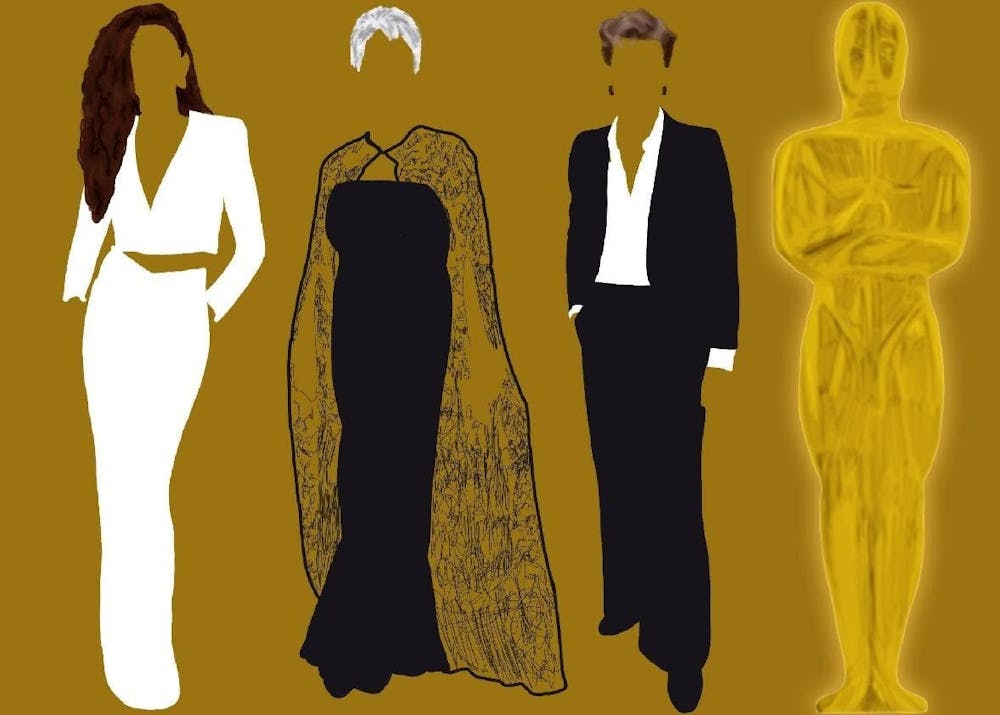中文版请点击此处
The Academy of Motion Picture Arts and Sciences announced the nominations for the 95th Oscars ahead of the upcoming ceremony March 12 last week. The Academy commended ten diverse films — from box office hits to films helmed by international directors — in the Best Picture category.
“Everything Everywhere All At Once” — directed by Daniel Kwan and Daniel Scheinert, popularly referred to as “the Daniels” — leads the pack of films with 11 nominations. This large number of nominations signals the film’s strength as one of the frontrunners to win the top prize of Best Picture.
Four of the film’s actors — Michelle Yeoh, Ke Huy Quan, Jamie Lee Curtis and Stephanie Hsu — gained nominations. Ke Huy Quan, in particular, delivered an emotionally layered performance and is expected to win Best Supporting Actor on Oscar Sunday. The imaginative, wacky and moving film astounded audiences last year and would certainly be a worthy Best Picture winner.
“The Banshees of Inisherin” — Martin McDonagh’s hilarious and poignant Irish tale — also appears to be a worthy Best Picture frontrunner. It accrued nine nominations of its own, including four for its main actors — Colin Farrell, Brendan Gleeson, Kerry Condon and Barry Keoghan. These four performances flawlessly execute McDonagh’s brilliant screenplay to convey the hidden emotions behind each of the characters.
For the first time in its history, the Academy nominated two sequels in the same Best Picture lineup — “Top Gun: Maverick” and “Avatar: The Way of Water.” The inclusion of these two big-budget blockbusters, as well as “Dune” in last year’s lineup, shows that the Academy is once again embracing box office juggernauts.
On the other hand, the Academy also recognized smaller dramas like “Women Talking” and “Tár,” which showcase excellent writing and acting rather than spectacle. The former picked up two nominations, while “Tár” tallied an impressive six nominations. The meticulous pacing and complexity of its story lets the audience make their own judgments about the titular character of “Tár,” making its Best Director and Best Original Screenplay nominations well-deserved.
In contrast to “Tár,” Darren Aronofsky’s “The Whale” leaves zero room for interpretation with its on-the-nose story and messaging. The Academy perhaps took issue with this, as the film was surprisingly snubbed for Best Picture and Best Adapted Screenplay, despite getting three total nominations.
“Triangle of Sadness” — Ruben Östlund’s biting class satire — likely took “The Whale’s” spot in Best Picture with its surprise nomination. The film’s three total nominations trump the other class commentary films of the past year, with “Glass Onion: A Knives Out Mystery” receiving one nomination and “The Menu” getting blanked.
“All Quiet on the Western Front”, the fourth foreign-language film to be nominated for Best Picture in the last five years, Baz Luhrmann’s frantic and chaotic biopic “Elvis” and Steven Spielberg’s loving and warmhearted autobiography “The Fabelmans” round out the Best Picture category.
Out of the 20 nominees in the acting categories, a notable 16 of them were nominated for their first Oscar. All five Best Actor nominees picked up their first career nominations, including seasoned veterans like Bill Nighy for “Living” and up-and-coming stars like Paul Mescal for “Aftersun.”
A record-breaking four total nominations for Asian actors highlight the diversity of the four categories, though two notable black actresses — Danielle Deadwyler for “Till” and Viola Davis for “The Woman King” — were shockingly neglected in the Best Actress category.
Moreover, zero women were nominated for Best Director. In fact, only one film in the Best Picture lineup — “Women Talking” — was directed by a woman, despite many other highly-acclaimed films like “Aftersun,” “The Woman King” and “Till” being directed by women this year.
Overall, the Academy did a terrific job recognizing the films that defined the past year. “Top Gun: Maverick” brought everyone back to the theaters. “Everything Everywhere All At Once” pushed the limits of creativity. “Tár” and “Triangle of Sadness” questioned the institutions and standards of today’s society. “The Banshees of Inisherin” revealed the emotional fragility of human relationships.
This group of ten films — both grand and small, both fun and serious — capture the essence of what the film industry of today aims to do with its work.







